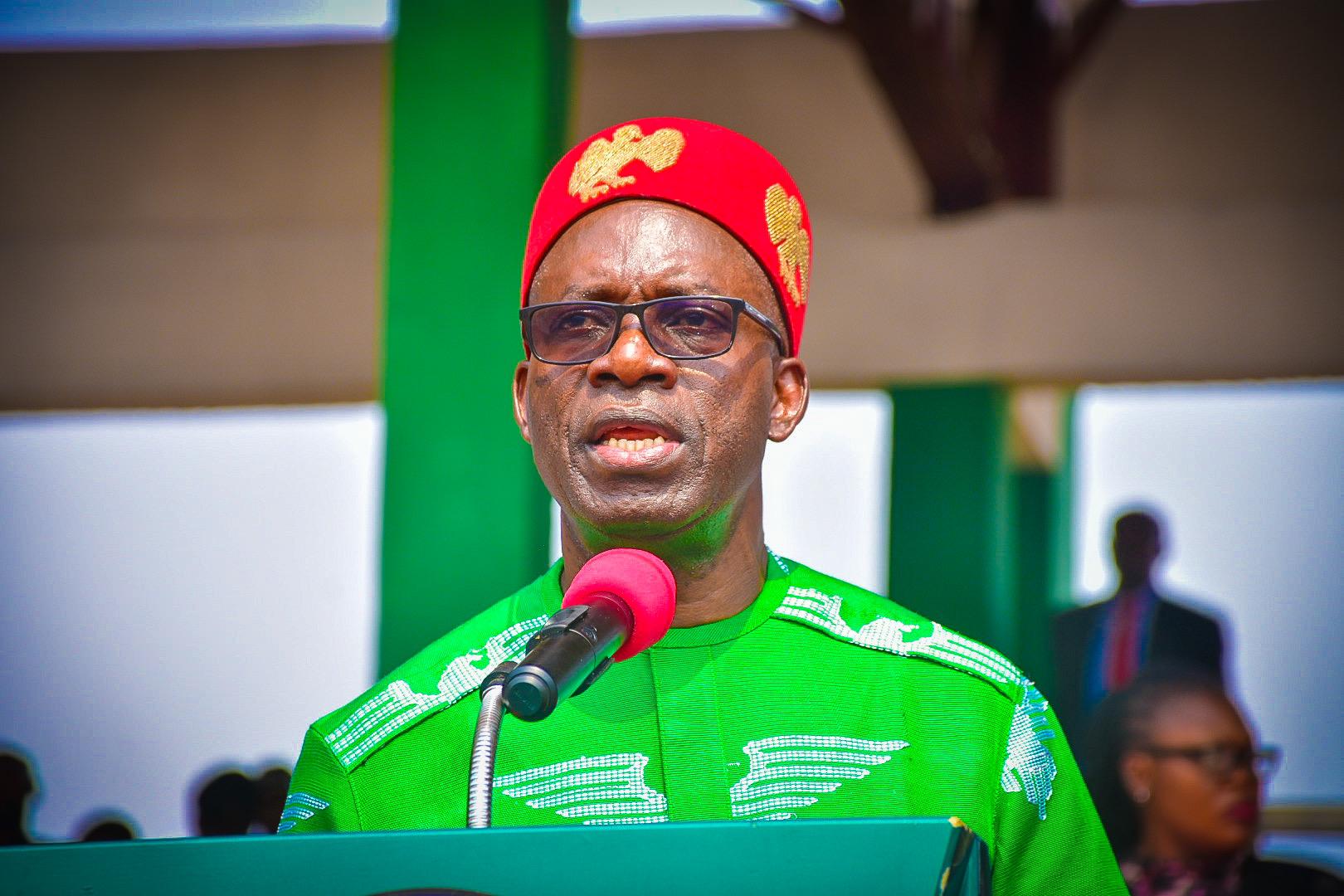It was another unforgettable day in our routine travels, the day I joined my principal, Soludo, on his homecoming to the University of Nigeria, Nsukka (UNN), his alma mater. He was scheduled to deliver a keynote lecture on “Ethical Leadership, Security, and Sustainable Development” and to be inducted into the “Hall of Fame of Global Ethical Thinkers.” This event was organized by the Ethics, AI, and Higher Education Strategy Team (EAISTRAP) of the university.
The visiting team, which included a few members of ANSEC, was filled with enthusiasm and anticipation about what was to unfold at UNN. As expected, the “super lion” would certainly roar and deliver a powerful message. We set out early that morning, with the governor’s convoy driving along the pleasant roads from Awka to Enugu State, heading toward the historic university campus.
As we arrived at UNN, the atmosphere changed -it became electric. Students, lecturers, and dignitaries lined the pathways, waving, cheering, and dancing. The sight of the governor stepping out of his car, dressed in his signature simple yet dignified akwaete attire, prompted a wave of applause from the crowd. It was clear that this wasn’t just a visit; it was a homecoming for a man who had once walked these very halls as the best student, a passionate lecturer, and a young itinerant professor decades ago.
Before the main event, Soludo was welcomed in the Conference Room of the Acting Vice-Chancellor of the University, after which we proceeded to the main event.
The event was held at the Princess Alexandra Auditorium (PAA), which was packed with students, faculty, lecturers, and dignitaries. As the governor took the stage, the energy in the room shifted. His lecture, titled “Ethical Leadership, Security, and Sustainable Development,” was both a challenge and an inspiration. He emphasized the importance of meritocracy and the dangers of transactional leadership, citing practical examples from his intentional and transformative governance in Anambra State.
The students erupted in applause multiple times, especially when he shared how the newly; 8,115 teachers, 18 permanent secretaries, 1,000 health personnel, and his appointees were employed through rigorous processes, regardless of connections, gender, ethnicity, or religion. He described how his administration is developing all sectors simultaneously across the three senatorial districts without recognizing any boundaries.
After the lecture, Soludo took a tour of some of his old haunts. We moved through the crowd to the Department of Economics, the famous Econometrics Lab, and even the hostels where he once lived—Alan Ikoku and its neighbor, Eni Njoku—where his compassionate leadership made a difference, and he made commitments to intervene in some critical areas of need.
With a nostalgic smile, he shared stories of his student and lecturing days, late-night study sessions, heated debates in class, the dreams he nurtured within those walls, his methods for invigilating students during exams, and his publications.
“This place shaped me,” he said, pausing at the entrance of the Economics department. The lessons Soludo learned there extended beyond textbooks; they taught him critical thinking, resilience, and the belief that Nigeria’s future could be transformed.
Many students approached the governor to express their gratitude for his visit. They had heard about him but had never seen him in person. Soludo encouraged them to strive for excellence, read widely, think critically, and never lose their passion.
His humility, encouragement, and the passing of the torch were moments that stuck with me.
As we drove back, we made a brief stop at the governor’s residence in Enugu, where the team took a 20-minute break. Then we headed back to Awka, to the governor’s lodge, where he had dinner with Mr. Governor. At the dining table, Soludo stood up and served each of us whatever we wanted without the help of the chef; I had never seen this before, and it left a lasting impression on me. During the meal, the governor was quiet, reflecting. He then turned to us and asked for a summary of the event, one by one. This reminded me that if you follow Soludo to an event, you must pay attention to every word he says on stage and take notes, as you may need to discuss it afterward.
Before we said goodnight, he turned to us one last time and said, “The future is in these young minds. If we empower them, Nigeria will rise.”
That day was not just about a speech; it was a reminder of why intentional leadership matters. It was about legacy, mentorship, and the unbroken chain of knowledge passed from one generation to the next.
As for me? I left UNN that day with one conviction: great leaders don’t just talk about change, they inspire others to make it happen.

